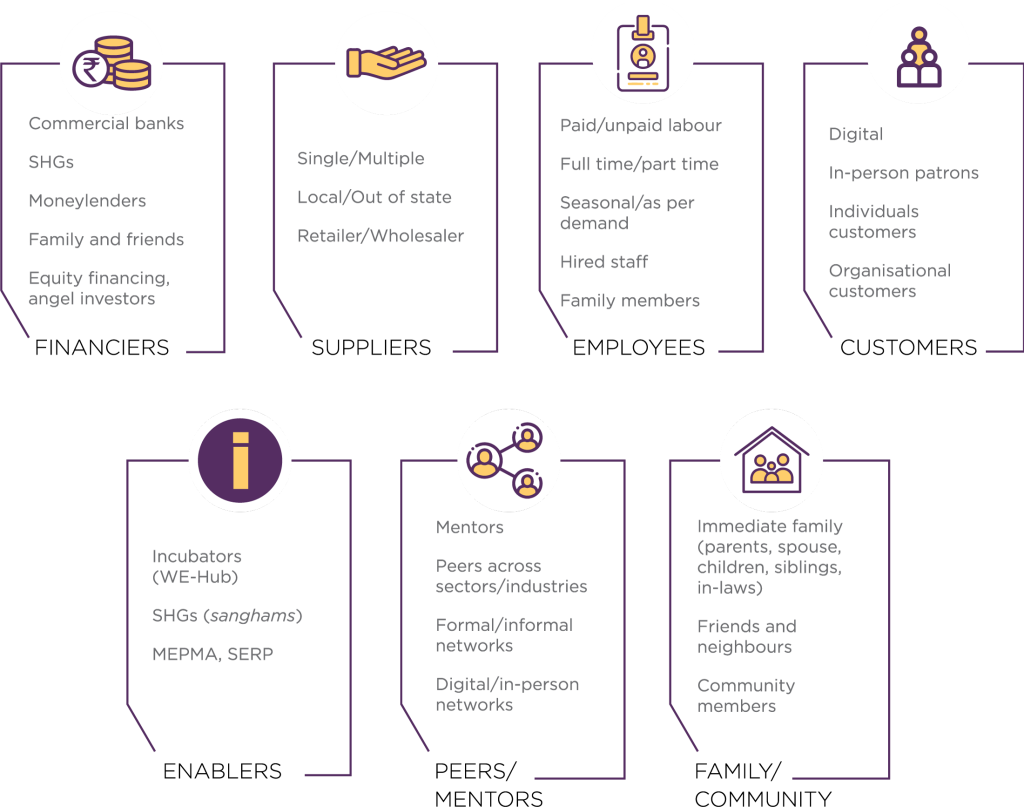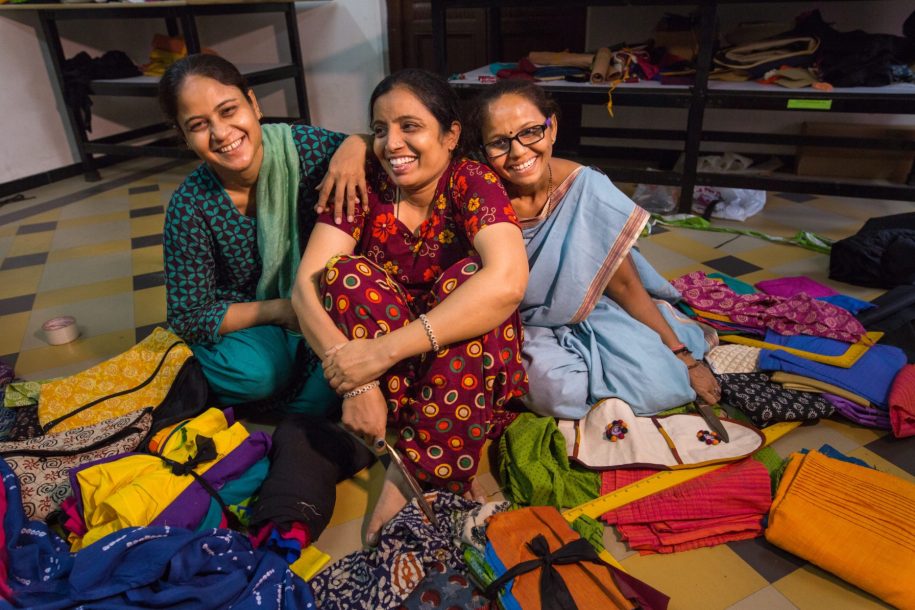This blog presents insights from a research study that seeks to understand how social interactions between women entrepreneurs and their business ecosystem intersect with their social and economic backgrounds, and in turn shape their business decisions and outcomes.
“Women are a part of all kinds of industries; in fact, women can work better than men: women in my village wake up early in the morning, cook, work in the paddy fields till evening and then come back home and cook for the family again…Gents go to the office by 10 AM, return home at night and eat whatever we cook.” — Female Entrepreneur, 49, Dried fruits and vegetables processing unit owner, Suryapet district
There has been growing interest within public and academic discourse alike around the questions of women’s participation and contribution to the economy. As more and more of us begin to acknowledge that women hold up half the sky, efforts to encourage and support women in these spaces have been ongoing for several decades through affirmative action, incentives, and gender-sensitive policies in the workplace as well as in the economy in general.
However, a closer look at the numbers associated with women’s participation in the economy and in entrepreneurship shows that despite these efforts, women continue to be underrepresented. India has an estimated 14.9 million women-owned enterprises, which hold the promise of job creation and improved agency for the country’s working-age female population. While positive spillover effects of these women-led businesses have been documented, women own only 20.4% of the micro, small and medium enterprises in India.
Understanding the social interactions between women entrepreneurs and their business ecosystem, and how these interactions intersect with their social and economic backgrounds, can shed light on the gender-specific issues in the field of entrepreneurship and ultimately help in shaping policy that aims to boost women’s entrepreneurship. Various studies have also captured the nature of interactions that entrepreneurs have with their business ecosystems, and how these interactions can be gendered, i.e. shaped by structural, social and economic inequities and power imbalances.
Along with WE Hub Foundation situated in Telangana, we conducted a study to understand the ways in which women entrepreneurs interact with their business ecosystems. These ecosystems can, depending on the scale and type of business, consist of suppliers, customers, financiers, employees, mentors and peers, enabling institutions, family and community members. The aim of the study was to capture the drivers (why) and the processes (how) behind how women entrepreneurs interact with each of these players while running their own businesses to provide a richer understanding of how trajectories of businesses unfold in the day-to-day that could be seen alongside the larger, pan-India picture one gets from census data and other quantitative sources.
Through this qualitative analysis, we wished to provide a more contextual and comprehensive understanding of the enablers and barriers faced by women-led businesses in particular. To understand this at a more granular level, we focused on the state of Telangana, where WE Hub continues to work with women entrepreneurs across varying business types and scales. Along with our primary respondents (women entrepreneurs), we also interviewed a sub-sample of male entrepreneurs, as well as some representatives from each ecosystem player category mentioned above.

Key Findings
#1 The internalisation of gendered perceptions around entrepreneurship and the secondary nature of entrepreneurship in women’s lives affects the way they perceive themselves as business owners.
#2 Men often mediate with specific segments of the ecosystem, such as suppliers and financiers, on behalf of women entrepreneurs.
“I make 70% of the decisions (regarding her tailoring business), and she makes the remaining 30%. I tell her how to do things relating to most things around business development. She looks after the actual work, while I look after the outside jobs: materials, machines etc.” — Male, 26, brother of a female entrepreneur who runs a tailoring unit
#3 Women entrepreneurs with stable businesses typically hire more women and promote a more gender-friendly workplace as compared to their male counterparts.
#4 A female entrepreneur’s socio-economic identity such as education levels, access to formal mentoring and learning networks, and social capital influences her journey and interaction with her business ecosystem.
#5 Across varying enterprise levels, women entrepreneurs’ access to information, finance and business opportunities are strongly tied to their business’s social capital and networks. More importantly, few entrepreneurs have access to such professional networks and social capital that are crucial for expanding their business.
This exploratory study examines an important theme around the social norms, gender stereotypes and biases that influence women’s entrepreneurship using an ecosystem lens. The patterns that emerge from the study are relevant in furthering our understanding of how women entrepreneurs interact with different actors and entities in their ecosystem, and how these interactions shape business decisions and access to resources such as finance. Further research can shed more light on how these decisions affect business outcomes such as productivity and turnover. Understanding these dynamics of an entrepreneur’s interactions with their business ecosystem and how they influence business decisions and success is pivotal to designing a robust framework for interventions that address social norms and biases.
Learn more about the study and its key findings in this research brief.
Cover Image: Paula Bronstein/Getty Images/Images of Empowerment
About the Author
Aishwarya Joshi is a Research Manager with the Small, Growing Businesses and Employment vertical at LEAD. She holds a Master’s degree in Society and Culture from IIT Gandhinagar and a Bachelor’s degree in Sociology from Fergusson College, Pune. Through her work, she strives to aid a more fruitful exchange between academic research, policy and decision making.


